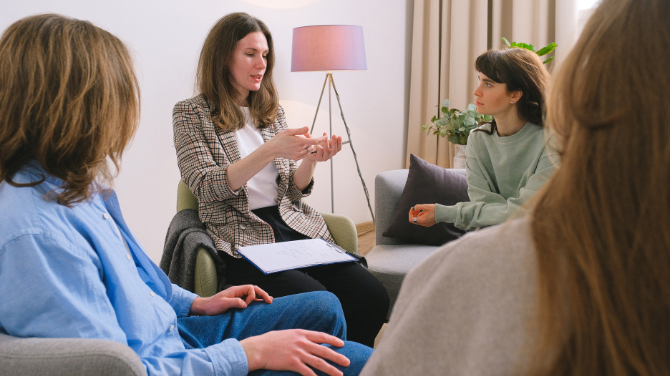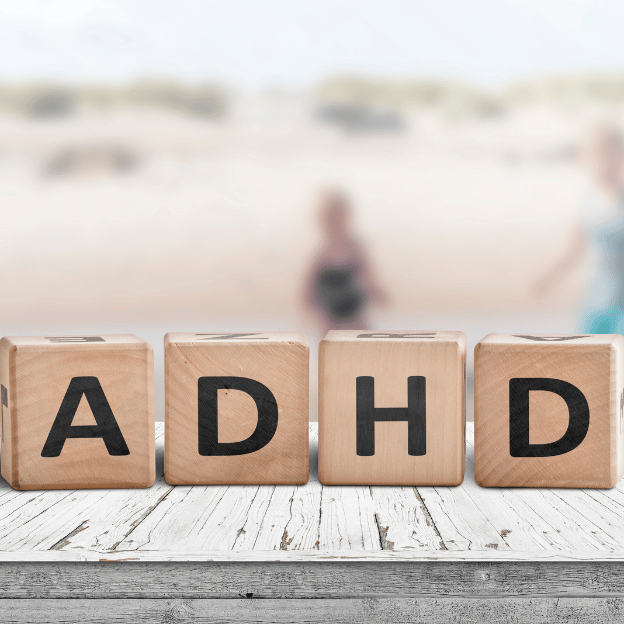Understanding Anxiety and the Role of an Anxiety Counsellor

Strong 8k brings an ultra-HD IPTV experience to your living room and your pocket.
Anxiety is a common mental health concern that affects millions of people worldwide. It is a natural response to stress, characterized by feelings of worry, nervousness, or fear. While occasional anxiety is a normal part of life, persistent or excessive anxiety can interfere with daily activities and impact overall well-being. Navigating through the complexities of anxiety can be challenging, but the guidance of an experienced anxiety counsellor can make a significant difference in managing and overcoming these challenges.
What is Anxiety?
Anxiety is a broad term that encompasses various disorders, including generalized anxiety disorder (GAD), panic disorder, social anxiety disorder, and specific phobias. Each type of anxiety disorder has its unique symptoms, but they all share the common feature of excessive fear or worry.
Generalized Anxiety Disorder (GAD): Characterized by chronic anxiety, exaggerated worry, and tension, even when there is little or nothing to provoke it.
Panic Disorder: Involves unpredictable panic attacks, which are sudden episodes of intense fear and physical symptoms, such as heart palpitations, shortness of breath, and dizziness.
Social Anxiety Disorder: Involves a significant amount of fear in social situations.
Specific Phobias: Involve fear of a specific object or situation, such as heights, flying, or spiders.
The Role of an Anxiety Counsellor
An anxiety counsellor is a mental health professional specializing in helping individuals understand and manage their anxiety. They provide a supportive environment and use evidence-based therapeutic techniques to address anxiety symptoms.
Assessment and Diagnosis: The first step in working with an anxiety counsellor is a comprehensive assessment to understand the nature and extent of the anxiety. The counsellor may use interviews, questionnaires, and other assessment tools to identify the specific anxiety disorder and its impact on the individual's life.
Developing a Treatment Plan: Based on the assessment, the counsellor collaborates with the individual to develop a personalized treatment plan. This plan outlines the therapeutic goals and the strategies that will be used to achieve them.
Therapeutic Techniques: Anxiety counsellors use a variety of therapeutic techniques to help individuals manage their anxiety. These may include:
Cognitive-Behavioral Therapy (CBT): Focuses on identifying and changing negative thought patterns and behaviors associated with anxiety.
Mindfulness and Relaxation Techniques: Help individuals stay present and reduce stress.
Exposure Therapy: Gradually introduces individuals to anxiety-provoking situations in a controlled manner to reduce fear over time.
Supportive Counseling: Provides emotional support and validation, helping individuals feel understood and less isolated.
Monitoring Progress: Regular sessions with the anxiety counsellor allow for monitoring progress and adjusting the treatment plan as needed. This ongoing support is crucial for maintaining improvements and preventing relapse.
Benefits of Working with an Anxiety Counsellor
Personalized Support: An anxiety counsellor provides individualized care, addressing the specific needs and concerns of each person.
Skill Development: Clients learn practical skills to manage anxiety symptoms, such as relaxation techniques, stress management, and problem-solving skills.
Improved Quality of Life: With effective counselling, individuals can reduce anxiety symptoms, leading to improved relationships, increased productivity, and a better overall quality of life.
Empowerment: Counselling empowers individuals to take control of their mental health, fostering self-awareness and resilience.
Finding the Right Anxiety Counsellor
Choosing the right anxiety counsellor is an essential step in the journey to mental wellness. Here are some factors to consider:
Qualifications and Experience: Look for a counsellor with specialized training and experience in treating anxiety disorders.
Therapeutic Approach: Consider whether the counsellor's therapeutic approach aligns with your preferences and needs.
Comfort and Trust: It is crucial to feel comfortable with the counsellor and trust in their ability to guide you through the healing process.
Accessibility: Consider the location, availability, and cost of counselling services.
FAQs About Anxiety Counselling
1. What can I expect during my first session with an anxiety counsellor?
During the initial session, the anxiety counsellor will conduct a thorough assessment of your anxiety symptoms, discuss your concerns, and begin to develop a personalized treatment plan. It is an opportunity to ask questions and set therapeutic goals.
2. How long does anxiety counselling take to see results?
The duration of counselling varies depending on the individual and the severity of the anxiety. Some people may see improvements in a few sessions, while others may require longer-term therapy. Consistency and active participation in therapy often lead to better outcomes.
3. Can anxiety counselling work in conjunction with medication?
Yes, anxiety counselling can complement medication. Many individuals benefit from a combination of therapy and medication prescribed by a psychiatrist or healthcare provider to manage their anxiety effectively.
4. Is online anxiety counselling effective?
Yes, online anxiety counselling can be just as effective as in-person sessions. It offers the convenience of receiving therapy from the comfort of your home and can be particularly beneficial for individuals with mobility issues or those living in remote areas.
5. How do I know if I need to see an anxiety counsellor?
If anxiety is interfering with your daily life, causing distress, or affecting your relationships, it may be beneficial to seek help from an anxiety counsellor. They can provide the tools and support needed to manage anxiety effectively.
6. Are there self-help strategies I can use alongside counselling?
Yes, alongside counselling, individuals can practice self-help strategies such as mindfulness meditation, regular physical activity, maintaining a healthy lifestyle, and staying connected with a supportive social network to manage anxiety.
Conclusion
Anxiety can be overwhelming, but with the right support, it is manageable. An anxiety counsellor provides the necessary guidance, support, and strategies to help individuals understand and overcome their anxiety. If you're searching for a compassionate and experienced anxiety counsellor, consider reaching out to Dr. Sudhir Arora. At Dr. Sudhir Arora’s practice, we are committed to helping you achieve mental well-being and lead a fulfilling life free from the constraints of anxiety. Remember, taking the first step towards seeking help is a powerful move towards healing and empowerment.
Note: IndiBlogHub features both user-submitted and editorial content. We do not verify third-party contributions. Read our Disclaimer and Privacy Policyfor details.







